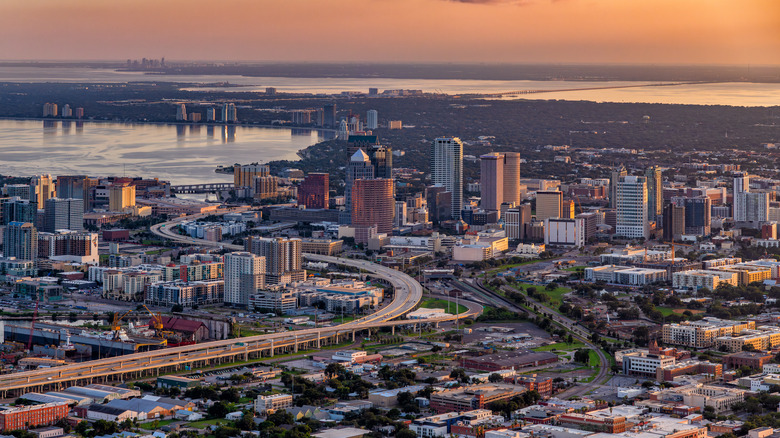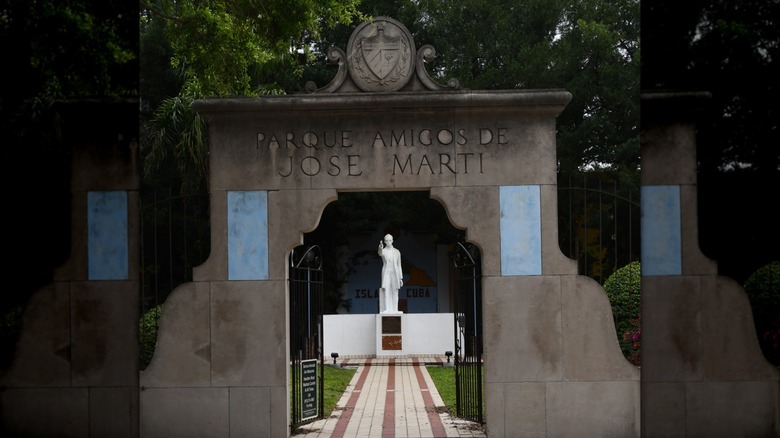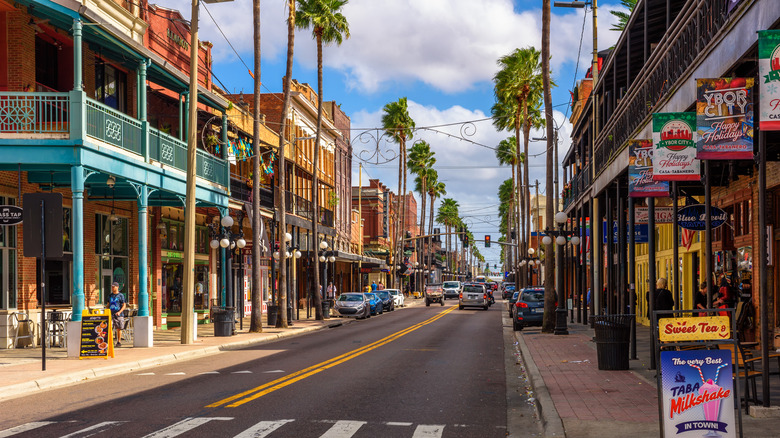Florida's Own Piece Of Cuba Is An Under-The-Radar Charming Riverside Park To Escape The Tampa Bustle
Florida's deep-rooted connection to Cuba is evident across the state, with around 1.5 million Cuban Americans calling it home. From Little Havana in Miami, a great place to experience Caribbean cuisine, to the historic Cuban enclaves of Tampa, the island's influence is everywhere. While Miami, although considered America's rudest city, is the obvious choice for a Cuban cultural experience, there's another, quieter place that offers a unique connection to Cuban history: Parque Amigos de José Martí in Ybor City, Tampa. This small but historically significant park in a neighborhood once dominated by cigar factories is a hidden treasure for history buffs, culture lovers, and anyone looking for a peaceful escape while exploring Florida's vibrant cities.
What makes this park so fascinating? The land within it is not just symbolically Cuban — it's actually owned by Cuba. Officially gifted to the Cuban government in honor of José Martí, the revolutionary leader who spent time in Tampa rallying support for independence, this 500-square-meter park is a rare pocket of foreign soil in the United States. Strolling through its iron gates, you'll find tropical plants, a mural of Cuba, and a statue of Martí himself. This little gem just to the east of the Hillsborough River offers a contemplative contrast to the lively energy of Ybor City.
How a piece of America became Cuban land
The story of Parque Amigos de José Martí stems from the late 1800s, when José Martí, an impassioned Cuban revolutionary, frequently traveled to Tampa to meet with cigar workers. There, he delivered speeches to build solidarity and raised funds for Cuba's fight for independence from Spain. At the time, the cigar industry was booming, drawing many Cuban immigrants to Ybor City, where they worked in factories. Martí saw Tampa as a crucial hub for his movement, and it was here that he laid the groundwork for the Cuban War of Independence, providing instructions that directly helped launch the uprising against Spanish rule. Many of his most fiery speeches were delivered at historic sites in Ybor City.
Before it became a park, the land now known as Parque Amigos de José Martí was home to a guesthouse run by two of Martí's supporters. He often stayed there while visiting Tampa, strengthening his connection to the area. The land, including the guesthouse, was purchased by Cuban Colonel Manuel Quevedo, who donated it to Cuba in 1956 as a tribute to Martí. When the guesthouse eventually became neglected, the park was built in its place, opening in 1960, just as Fidel Castro rose to power in Cuba. Over the years, it became a flashpoint for protests and counter-protests between pro-Castro and anti-Castro Cuban Americans, both of whom revered Martí. Despite shifting Cuban-American relations, the park has always remained under Cuban ownership, and its soil contains earth from all over Cuba — a symbolic touch connecting the park to the entire island.
Explore Ybor City's Cuban legacy
Getting to Parque Amigos de José Martí is easy if you're flying into Tampa International Airport. Ybor City is just a 15-minute drive away, and the park sits at the corner of 8th Avenue and 13th Street. Best of all, it's free to visit, though its hours are limited: Monday through Friday, from 8 a.m. to 1:30 p.m. If you're planning to stay overnight in Ybor City, hotel rooms typically range from $200 to $300 per night, with upscale vacation rentals available for those looking for a more luxurious experience.
To make the most of your visit, consider pairing the park with other historic Ybor City landmarks. Just a 15-minute walk away is Columbia Restaurant, Florida's oldest eatery, where you can dig into a classic Cuban sandwich and a rich cup of café con leche. For history buffs, the Ybor City Museum State Park on 9th Avenue offers a fascinating look into the area's cigar industry, Cuban heritage, and even preserved factory homes. As you explore Ybor City, keep an eye out for memorials to Martí, including a marker of the Emilio Pons Cigar Factory, where he delivered his final speech. After soaking in the history, you might just find yourself craving a Cuban cigar to round out the experience.


